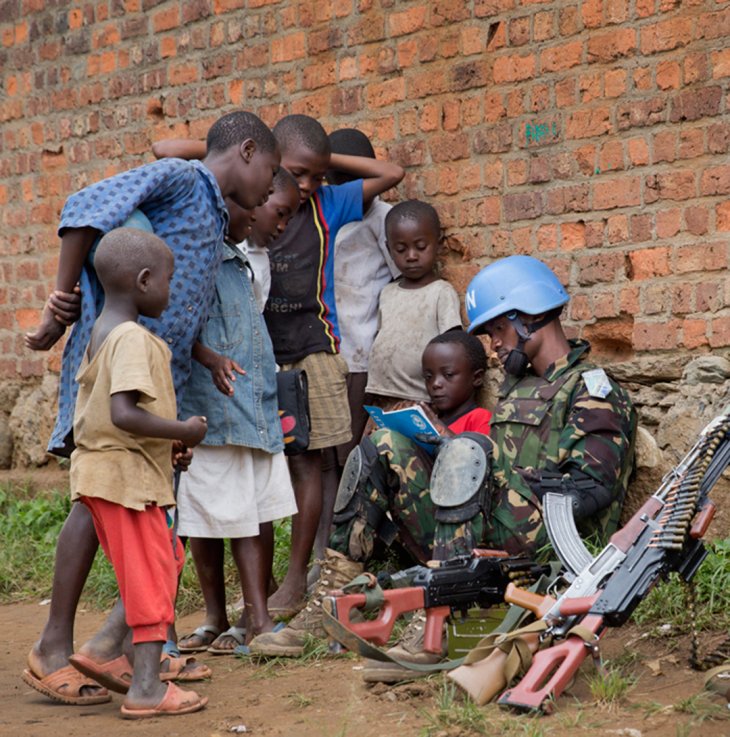
Over the past twenty years feminist activists, civil society groups, and international organisations have argued that there is a need to actively consider gender in all aspects of security policy. Demanding shifts in the way that Disarmament, Demobilization and Reintegration (DDR) and Security Sector Reform (SSR) programmes are delivered has been one of the most successful areas of this activism. After a string of examples in the 1990s and early 2000s, where DDR and SSR programs excluded women, or failed to address the particular ways in which their gender made them insecure, real change has since been achieved in international programming.
Rwanda has widely been lauded as a success story in this regard. The externally-funded, locally-owned DDR/SSR programme’s gender-sensitive approach has included actively integrating women into the new national Rwanda Defence Force (RDF), and implementing polices to address gender insecurities across Rwanda, as well as within military families. However, rather than focus on efforts to mainstream gender equality within the national military and reduce overt forms of gendered violence in society, we examined how Rwandan masculinity has been reconstructed through the DDR/SSR programme. To do this, we analysed RDF policy discourse, training materials, the writings of a Rwandan military historian, and statements from Rwandan male and female soldiers during depth interviews. We then questioned whether this reconstruction process smuggled harmful notions of gender and militarism into gender-sensitive programming.
Our research shows that the Rwanda Defence Force has rejected the explicitly violent and aggressive forms of militarised masculinity that have received most attention by feminist critics. However, the RDF’s promotion of a more ‘civilised’, respectable form of militarised masculinity has been used to entrench the central role of an elite-dominated military in the post-conflict state, and has marginalised other ways to be a man in Rwandan society. We show how this has been achieved through the appropriation of Rwandan myths of origin, in addition to internationally imported myths promoting the ideal of the cosmopolitan military in international DDR/SSR programming. In doing so, the Rwandan Defence Force maintains an oppressive pattern of practice (which we term a masculine logic) that while appearing to be egalitarian, has produced several harmful consequences in Rwanda. The most visible of these include the entrenchment of oppressive norms of femininity that demand women behave in ‘respectable’ ways in order to deserve the protection that DDR/SSR has demanded; the silencing of Lesbian, Gay, Bisexual and Transgender (LGBT) soldiers; and by banishing those military men who no longer fit the new Rwandan ideals of militarised masculinity to civilian society. Our field research in Rwanda also revealed that educated young Rwandan men who have been singled out as potential leaders experience increased surveillance under this oppressive masculine logic.
In problematising some of the prevailing ways in which this agenda has been pursued by policymakers and academics, our article reaffirms the importance of remaining attentive to how ‘gender-sensitive’ programs can still smuggle oppressive masculine logics into their design and implementation in post-conflict reconstruction environments.